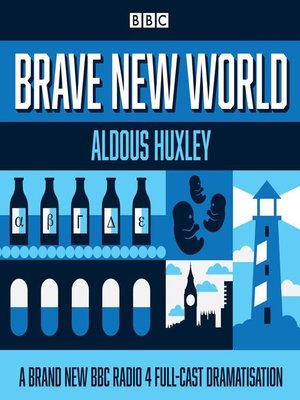Review of “Brave New World” by Aldous Huxley
Last week I reviewed “1984” by George Orwell, and I feel like “Brave New World” is sort of a companion piece to that book. Both books are set in a future society of London; both deal with government control, and both deal with issues of sexuality in different ways. While “1984” is a bleak and gloomy totalitarian world, “Brave New World” has a sheen to its world that allows the reader to believe in government control. Author Aldous Huxley created this world borrowing from socialism and capitalism to create a “Utopian” society that conceives people to be content with their role in society. Through conditioning, consumerism, and class, the people have lost their freedom of choice in return for a stable social economy and the illusion of happiness.
In the book, people are produced in a lab and bred for specific job types. Some people are conditioned to be the perfect workers. The director of the conditioning facility says, “But in Epsilons...we don't need human intelligence” (Huxley, pp. 15). This shows that the lower-class people are less intelligent than the upper class of Alphas and Betas. This allows for the upper class to stay in power over the lower classes. Everyone is socially conditioned to view fixing something that is old and worn as anti-social or anti-normative. The phrase they use is “The more stitches, the less riches” (Huxley, pp. 121). This is a phrase I say anytime I have to stitch up some ripped clothing.
In the book, the world controller, Mustapha Mond, suggests that substituting pain and conflict for the drug soma creates happiness within people. He states that “They're blissfully ignorant of passion and old age” (Huxley, pp. 220). The people are happy because they don't know what they are missing in life. It is an interesting philosophy that can be applied to our current times. If people are happy, does it matter how or why they've become happy? A good question to ponder and something that drives the story.
If you have read “1984” and haven't yet read “Brave New World,” I highly suggest reading this book. I didn't love the book. I actually loved the first two chapters, then slowly lost interest as the book went on. But that is because I wanted to see more about how technology and science function in the new world. It's still a fascinating book to read.
Thank you for reading the blog. If you enjoyed this post, please leave your thoughts, comments and feedback. Be sure to follow the blog on social media for updates.
Get ready for Halloween by reading my spooky/thriller inspired stories!
If you're looking for a Halloween themed children's book, pick up my book on Amazon, “Who Scared Jack?”
Works Cited
Huxley, Aldous. (2010). Brave New World. Harper Perennial.
Marx, Karl. (2017) “The German Ideology”,Literary Theory: An Anthology, 3rd ed. Rivkin, Julie & Ryan, Michael (Eds.), Blackwell publishing, pp. 730-735.






No comments:
Post a Comment